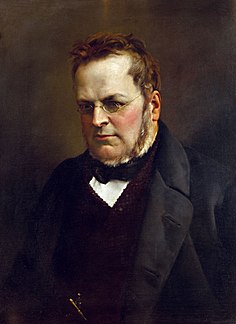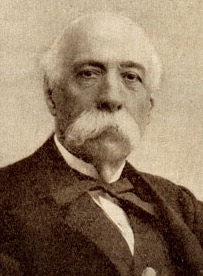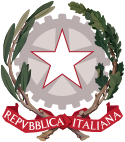
A double referendum was held in Italy on 11 June 1978. Voters were asked whether they approved of the repealing of laws on political party financing and public order. Both proposals were rejected.

A twelve-part referendum was held in Italy on 11 June 1995. Voters were asked whether they approved of the repealing of laws on union representation, union dues, collective contracts for public sector workers, internal exile for mafia members, public ownership of RAI, concessions for television channels, advertising breaks during films, television publicity, commercial licensing, local council elections and shopping hours. Only five of the twelve proposals were passed.

A referendum on the electoral law was held in Italy on 18 April 1999. Voters were asked whether they approved of replacing the mixed-member proportional representation electoral system with one based solely on single-member constituencies, with the 25% of seats instead allocated to the second-placed in the constituencies with the most votes. The proposal was supported by larger parties, but opposed by smaller ones. Although the proposal was approved by 91.5% of voters, turnout was only 49.6%, resulting in the referendum being invalidated as the threshold of 50% was not passed.

A constitutional referendum was held in Italy on 25 June 2006. Voters were asked whether they approved of amending 57 articles of the constitution. The reforms were proposed by the Silvio Berlusconi government, which had lost power in the April 2006 elections. They would have given more power to the Prime Minister by allowing him or her to dissolve parliament, appoint and sack ministers and control government policy. The Chamber of Deputies would have been given responsibility for foreign policy, defence and immigration, and the Senate responsibility for federal law. The proposals would also have increased the power of the regions, giving them control of education, healthcare, law and order, as well as giving them representation in the Supreme Court. The proposals were opposed by the incumbent Prime Minister Romano Prodi, and were rejected by 61.3% of voters.

A constitutional referendum was held in Italy on 7 October 2001. The amendment was proposed by the Silvio Berlusconi government. Voters were asked whether they approved of amending the constitution to give more powers to the regions on issues including agriculture, education, healthcare and taxation. The proposals were approved by 64.2% of voters.

A seven-part referendum was held in Italy on 15 June 1997. Voters were asked whether they approved of the repealing of laws on topics including privatisation, conscientious objectors, hunting, the judiciary and journalists, as well as whether the Ministry of Agrarian Politics should be abolished. Although all seven proposals were approved by voters, the voter turnout of 30% was well below the 50% threshold and the results were invalidated.

A seven-part referendum was held in Italy on 21 May 2000. Voters were asked whether they approved of the repealing of laws on topics including election funding, the electoral system, the judiciary, employment and union dues. Although all but one of the seven proposals were approved by voters, the voter turnout of 32% was well below the 50% threshold and the results were invalidated.

A double referendum was held in Italy on 15 May 2003. Voters were asked whether small companies should be forced to re-employ workers they had sacked illegitimately and whether the property owners could refuse to allow electricity cables to be installed on private property. Although both were approved by wide margins, the voter turnout of 26% was well below the 50% threshold and the results were invalidated.

A four-part referendum on fertility laws was held in Italy on 12 June 2005. Voters were asked whether research and access to the research on embryos should be limited, whether embryos should be legally recognised as people and whether IVF treatment should be limited to three embryos. The referendum was called after the Italian Radicals collected the 500,000 signatures required. Although all four proposals were approved by wide margins, the voter turnout of 26% was well below the 50% threshold and the results were invalidated. Pope Benedict XVI had called for a boycott.

General elections were held in Italy on 27 January 1861, with a second round on 3 February. The newly elected Parliament first convened in Turin on 4 March 1861, where, thirteen days later, it declared the unification of the country as the Kingdom of Italy.

General elections were held in Italy on 23 May 1886, with a second round of voting on 30 May. The "ministerial" left-wing bloc emerged as the largest in Parliament, winning 292 of the 508 seats. As in 1882, the election was held using small multi-member constituencies with between two and five seats.

General elections were held in Italy on 23 November 1890, with a second round of voting on 30 November. The "ministerial" left-wing bloc emerged as the largest in Parliament, winning 401 of the 508 seats. As in 1886, the election was held using small multi-member constituencies with between two and five seats.

A referendum on Sunday shopping was held in Slovenia on 21 September 2003. Voters were asked whether they approved of limiting shops to opening on ten Sundays a year. The proposal was approved by 58% of voters, although voter turnout was only 27.5%.

A referendum on the electoral system was held in Liechtenstein on 30 May 1935. Voters were asked whether they approved of introducing a system using proportional representation. The proposal was rejected by 52.7% of voters. Nevertheless, a proportional system was later adopted in 1939.

General elections were held in Liechtenstein on 29 April 1945. Following the "silent elections" of 1939, they were the first to use the new proportional representation system. The Progressive Citizens' Party won eight of the 15 seats in the Landtag, but remained in coalition with the Patriotic Union.
Seven referendums were held in Switzerland in 1972. The first two were held on 5 March on a popular initiative on the promotion of housebuilding and on an amendment to the Swiss Federal Constitution to protect tenants. The popular initiative was rejected, whilst the constitutional amendment was approved. The third and fourth were held on 4 June on measures to stabilise the federal construction market and protecting currency, both of which were approved. The fifth was held on 24 September on a popular initiative for enhanced arms control and a ban on weapon exports, but was narrowly rejected. The final two were held on 3 December on a popular initiative on introducing a "people's pension" and on an agreement with the European Community. The pensions initiative was rejected, whilst the agreement was approved.
Fourteen referendums were held in Switzerland in 1977. The first three were held on 13 March on popular initiatives on foreign infiltration, limiting naturalisation and changing the rules on referendums on treaties. All three were rejected, whilst the counter-proposal was approved. The next two were held on 12 June on changes to sales tax and direct federal taxation (rejected) and on tax harmonisation (approved).
Five referendums were held in Switzerland in 1988. The first two were held on 12 June on a federal resolution on the constitutional principles behind a co-ordinated transport policy and on a popular initiative on lowering the retirement age to 62 for men and 60 for women. Both were rejected by voters. The final three referendums were held on 3 December on three popular initiatives "against real estate speculation", "for the shortening of labour time" and on limiting immigration. All three were rejected.
Fifteen referendums were held in Switzerland during 1992. The first two were held on 16 February on popular initiatives "for a financially bearable health insurance" and "for the drastic and stepwise limitation of animal experiments." Both were rejected by voters. The next seven were held on 17 May on joining and contributing to the Bretton Woods system, a federal law on water protection (approved), a popular initiative "for the recovery of our waters" (rejected), a federal resolution on the popular initiative "against the malpractice of gene technology on humans" (approved), a federal resolution on creating a civilian service alternative to military service (approved) and a change to the Strafgesetzbuch and the Military Penal Code on sexual integrity (approved).
Folketing elections were held in Denmark on 14 June 1855 in order to approve amendments to the constitution. Peter Georg Bang remained Prime Minister following the elections.








